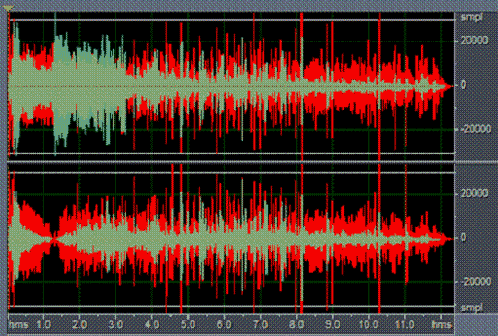"Your Compressor Is Making Noise"

What recordings would sound like if compressors had never been invented, I
do not know. (Who said, "A whole lot better!"?)
The fact is that the sound of recording is largely the sound of the
compressor. Few recordings are made without compression of at least some
individual tracks, and possibly the entire mix.
But whenever you compress, you add noise. It always happens - no exceptions.
So here we have a problem that requires a solution if our recordings are not to
suffer.
But why does a compressor add noise? Let's look in more detail...
The action of a compressor is to reduce high levels in a signal so that they
are closer to the lower levels. We say that the compressor 'reduces the dynamic
range'.
The problem now is that the signal now sounds quieter because the peak
levels are lower. So we need to amplify the signal back up. This is called 'make
up' gain.
So now we have a signal that is as loud as it was before in the peaks, and
the lower-level sections are louder too.
The problem is that the compressor has no way of distinguishing between the
low level signal that you want, and low level noise that you don't want. Every
signal contains some noise. There is no such thing as a noise-free recording.
So in bringing up the lower levels through make-up gain, the noise level is
brought up too. What can be done?
In an individual track of just one instrument or vocal, while the instrument
is playing the noise will be obscured, or 'masked' as we call it. The noise will
only be audible in the gaps when the instrument stops playing.
If we can silence those gaps, then the noise will be inaudible. To do that,
we need another piece of equipment - the noise gate.
A noise gate works by detecting the difference in level between the wanted
signal and the noise. Where there is wanted signal, which will be higher in
level than the noise, the gate lets it through. When there is just noise, the
gate shuts it off.
Noise gates can be tricky to set up, but the same effect can be achieved by
simply muting sections of a track when the instrument isn't playing.
It is important to realize that the above only works where there are gaps.
If you compress the entire stereo mix, then there will be no gaps, hence the
noise gate cannot provide any benefit.
If you compress the stereo mix, you will have to accept that it will be
noisier. You can tell how much noisier - look at the gain reduction meter on
your compressor (or compression plug-in) - the maximum gain reduction that it
shows is equal in decibels to the amount of noise you have added.
Being able to manage noise effectively is the mark of a professional sound
engineer.

